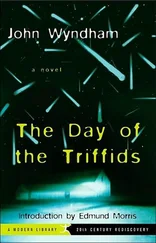John Florio - The Decameron (Day 6 to Day 10)
Здесь есть возможность читать онлайн «John Florio - The Decameron (Day 6 to Day 10)» — ознакомительный отрывок электронной книги совершенно бесплатно, а после прочтения отрывка купить полную версию. В некоторых случаях можно слушать аудио, скачать через торрент в формате fb2 и присутствует краткое содержание. ISBN: , Жанр: foreign_antique, foreign_prose, на английском языке. Описание произведения, (предисловие) а так же отзывы посетителей доступны на портале библиотеки ЛибКат.
- Название:The Decameron (Day 6 to Day 10)
- Автор:
- Жанр:
- Год:неизвестен
- ISBN:http://www.gutenberg.org/ebooks/52618
- Рейтинг книги:3 / 5. Голосов: 1
-
Избранное:Добавить в избранное
- Отзывы:
-
Ваша оценка:
- 60
- 1
- 2
- 3
- 4
- 5
The Decameron (Day 6 to Day 10): краткое содержание, описание и аннотация
Предлагаем к чтению аннотацию, описание, краткое содержание или предисловие (зависит от того, что написал сам автор книги «The Decameron (Day 6 to Day 10)»). Если вы не нашли необходимую информацию о книге — напишите в комментариях, мы постараемся отыскать её.
The Decameron (Day 6 to Day 10) — читать онлайн ознакомительный отрывок
Ниже представлен текст книги, разбитый по страницам. Система сохранения места последней прочитанной страницы, позволяет с удобством читать онлайн бесплатно книгу «The Decameron (Day 6 to Day 10)», без необходимости каждый раз заново искать на чём Вы остановились. Поставьте закладку, и сможете в любой момент перейти на страницу, на которой закончили чтение.
Интервал:
Закладка:
Serving as an advertisement to unlearned Parents, not to be over-rash, in censuring on Schollers imperfections, through any bad or unbeseeming perswasions.
Madame Phillippa, being accused by her Husband Rinaldo de Pugliese, because he tooke her in Adultery, with a young Gentleman named Lazarino de Guazzagliotori: caused her to bee cited before a Judge. From whom she delivered her selfe, by a sodaine, witty, and pleasant answere, and moderated a severe strict Statute, formerly made against women.
Wherein is declared, of what worth it is to confesse a truth, with a facetious and witty excuse.
Fresco da Celatico, counselled and advised his Neece Cesca: That if such as deserved to bee looked on, were offensive to her eyes (as she had often told him;) she should forbeare to looke on any.
In just scorne of such unsightly and ill-pleasing surly Sluts, who imagine none to bee faire or well-favoured, but themselves.
Signior Guido Cavalcante, with a sodaine and witty answere, reprehended the rash folly of certaine Florentine Gentlemen, that thought to scorne and flout him.
Notably discovering the great difference that is betweene learning and ignorance, upon Judicious apprehension.
Frier Onyon promised certaine honest people of the Country, to shew them a Feather of the same Phoenix, that was with Noah in his Arke. In sted whereof, he found Coales, which he avouched to be those very coales, wherewith the same Phoenix was roasted.
Wherein may be observed, what palpable abuses doe many times passe, under the counterfeit Cloake of Religion.
Wherein the Discourses are directed, for the discovery of such policies and deceits, as women have used for beguiling of their Husbands, either in respect of their love, or for the prevention of some blame or scandall; escaping without sight, knowledge, or otherwise.
John of Lorraine heard one knocke at his doore in the night time, whereupon he awaked his Wife Monna Tessa. Shee made him beleeve, that it was a Spirit which knocked at the doore, and so they arose, going both together to conjure the Spirit with a charme; and afterwards, they heard no more knocking.
Reprehending the simplicity of some sottish Husbands: And discovering the wanton subtilties of some women, to compasse their unlawfull desires.
Peronella hid a young man her Friend and Lover, under a great brewing Fat, uppon the sodaine returning home of her Husband; who tolde her, that he had sold the saide Fat, and brought him that bought it, to carry it away. Peronella replyed, That shee had formerly solde it unto another, who was now underneath it, to see whether it were whole and sound, or no. Whereupon, he being come forth from under it; shee caused her Husband to make it neate and cleane, and so the last buyer carried it away.
Wherein is declared, what hard and narrow shifts and distresses, such as be seriously linked in Love, are many times enforced to undergoe: according as their owne wit, and capacity of their surprizers, drive them to extremities.
Friar Reynard, falling in love with a Gentlewoman, Wife to a man of good account; found the meanes to become her Gossip. Afterward, he being conferring closely with her in her Chamber, and her Husband comming sodainely thither: she made him beleeve, that he came thither for no other ende; but to cure his God-sonne by a charme, of a dangerous disease which he had by wormes.
Serving as a friendly advertisement to married Women, that Monks, Friars, and Priests may be none of their Gossips, in regard of unavoydable perils ensuing thereby.
Tofano in the night season, did locke his Wife out of his house, and she not prevailing to get entrance againe, by all the entreaties shee could possibly use: made him beleeve that shee had throwne her selfe into a Well, by casting a great stone into the same Well. Tofano hearing the fall of the stone into the Well, and being perswaded that it was his Wife indeede; came forth of his house, and ranne to the Welles side. In the meane while, his Wife gotte into the house, made fast the doore against her Husband, and gave him many reprochfull speeches.
Wherein is manifested, that the malice and subtilty of a woman, surpasseth all the Art or wit in man.
A jealous man, clouded with the habite of a Priest, became the Confessour to his owne Wife; who made him beleeve, that she was deepely in love with a Priest, which came every night, and lay with her. By meanes of which confession, while her jealous Husband watched the doore of his house; to surprise the Priest when he came: she that never meant to doe amisse, had the company of a secret friend who came over the toppe of the house to visite her, while her foolish Husband kept the doore.
In just scorne and mockery of such jealous Husbands, that wil be idle headed upon no occasion. And yet when they have good reason for it, doe least of all suspect any such injury.
Madame Isabella, delighting in the company of her affected friend, named Lionello, and she being likewise beloved by Signior Lambertuccio: At the same time as shee had entertained Lionello, she was also visited by Lambertuccio. Her Husband returning home in the very instant; she caused Lambertuccio to runne foorth with a drawne sword in his hand, and (by that meanes) made an excuse sufficient for Lionello to her Husband.
Wherein is manifestly discerned, that if Love be driven to a narrow straite in any of his attempts; yet hee can accomplish his purpose by some other supply.
Lodovico discovered to his Mistresse Madame Beatrix, how amourously he was affected to her. She cunningly sent Egano her Husband into his garden, in all respects disguised like herselfe; while (friendly) Lodovico conferred with her the meane while. Afterward, Lodovico pretending a lascivious allurement of his Mistresse, thereby to wrong his honest Master, instead of her, beateth Egano soundly in the Garden.
Whereby is declared, that such as keepe many honest seeming servants, may sometime finde a knave among them, and one that proves to bee over-sawcy with his Master.
Arriguccio Berlinghieri, became immeasurably jealous of his Wife Simonida, who fastened a thred about her great toe, for to serve as a signall, when her amourous friend should come to visite her. Arriguccio findeth the fallacy, and while he pursueth the amorous friend, shee causeth her Maide to lie in her bed against his returne: whom he beateth extreamly, cutting away the lockes of her haire (thinking he had done all this violence to his Wife Simonida:) and afterward fetcheth her Mother and Brethren, to shame her before them, and so be rid of her. But they finding all his speeches to be false; and reputing him to be a drunken jealous foole; all the blame and disgrace falleth on himselfe.
Читать дальшеИнтервал:
Закладка:
Похожие книги на «The Decameron (Day 6 to Day 10)»
Представляем Вашему вниманию похожие книги на «The Decameron (Day 6 to Day 10)» списком для выбора. Мы отобрали схожую по названию и смыслу литературу в надежде предоставить читателям больше вариантов отыскать новые, интересные, ещё непрочитанные произведения.
Обсуждение, отзывы о книге «The Decameron (Day 6 to Day 10)» и просто собственные мнения читателей. Оставьте ваши комментарии, напишите, что Вы думаете о произведении, его смысле или главных героях. Укажите что конкретно понравилось, а что нет, и почему Вы так считаете.












